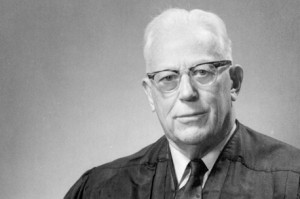 Busy day, but I wanted to get this posted and hopefully expand on the thought later.
Busy day, but I wanted to get this posted and hopefully expand on the thought later.
When he was running as the Vice Presidential half of Thomas E. Dewey’s Republican ticket in 1948, Earl Warren, then the Governor of California, was asked by the New York Times to “define ‘liberalism’ and to describe what it meant to him as a philosophy.” Warren linked the idea of “liberalism” with that of “Progressivism,” and he replied:
I particularly like the term “Progressive,” not necessarily as a party label, but as a conception. To me it represents true liberalism and the best attitude that we could possibly have in American life. It is distinguishable from both reaction and radicalism, because neither of these philosophies make for real progress.
The reactionary, concerned only with his own position, and indifferent to the welfare of others, would resist progress regardless of change conditions or human need.
The radical does not want to see any progress at all because he hopes that our democratic institutions will fail and that in the collapse he will be able to take over with some form of alien tyranny.
The progressive, however, realizes that democracy is a growing institution and that, if it is to succeed, we must make steady advances from day to day to constantly improve it and adapt it to human requirements on an ever-widening base.
The progressive has faith in democracy, and he is determined to work for its improvement and greater effectiveness; he realizes that, as with everything else in human affairs, we must work at it patiently, with forbearance and good will. He has the courage to develop it through trial and error, seeking to assure real freedom, not merely for a few, but for all, and to this end he is willing to subordinate his private interest to the common good.
That is the best explanation I’ve read of what “Progressive” means.
Quoted language in the first paragraph as well as the entire quote from Warren taken from page 216 of “Justice For All: Earl Warren and the Nation He Made,” by Jim Newton.